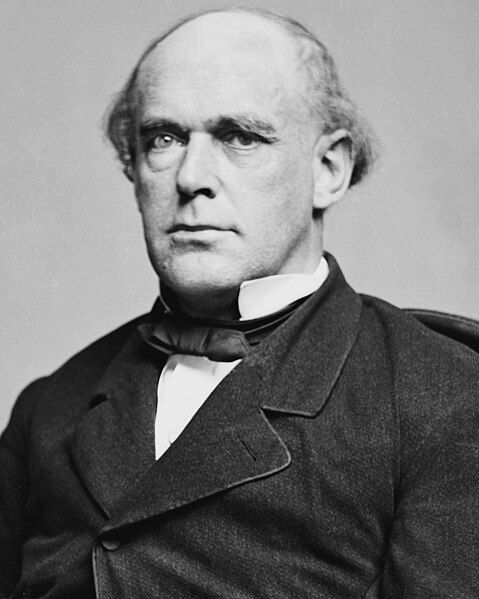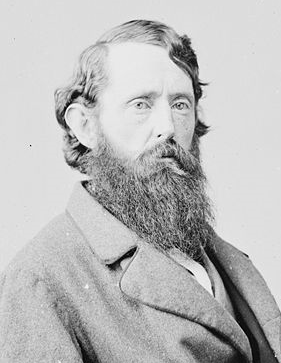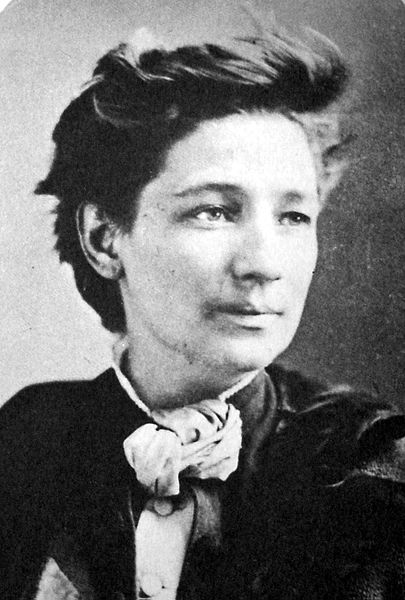You are using an out of date browser. It may not display this or other websites correctly.
You should upgrade or use an alternative browser.
You should upgrade or use an alternative browser.
America: Write Your Own History
- Thread starter Royal Tenenbaum
- Start date
Marcher Jovian
Emperor
- Joined
- Jul 12, 2013
- Messages
- 1,242
Hancock
mrrandomplayer
Hopeless Situation Warrior
Lincoln
adhiraj.bose
Deity
Lincoln He's doing a good job and he should get a second chance.
ales_
Heir
What about Ulysses S. Grant?
Royal Tenenbaum
Write your Own History
- Joined
- Oct 23, 2012
- Messages
- 2,756
What about Ulysses S. Grant?
Had Abraham Lincoln not be shot his party would not have run Grant.
-moved-
Royal Tenenbaum
Write your Own History
- Joined
- Oct 23, 2012
- Messages
- 2,756
1868-1872: Second Era of Good Feeling

Lincoln's second term was regarded as the Second Era of Good Feeling, as the nation had no real external threats and the economy was on the rebound.
With the science rate low, Lincoln was surprised to hear that the National Institute for Vehicular Research found more efficient motor oil. With a very small purchase of the patent, the United States Government began producing airships and ships with less cost.

Lincoln then turned again to foreign diplomacy, recreating trade with Great Britain.

In early 1871, after bombardment from airships and the USS Winfield, Anchorage was captured from Russia with little casualties.

Later that year, breakthroughs in medicine would be found with scientists exploring the ruins of Hermosillo. Using his executive powers, Lincoln paid the expedition money out of the minimum treasury deposit, stating that this is a time where the treasury is crucial. Further findings were not found, however.

That year, Lincoln traveled around the world talking to leaders. His first stop was with Thailand.

... but... he got creeped out by his white eyeliner.
His next stops were Germany and Turkey, where he respectfully ended American alliance ties with them, hoping to prevent another Great War.

With the landing of American troops in Sweden to fight against the Soviets, later historians would state that the Great War had ended, and the Finland Conflict had begun. Over the next couple years, three divisions of infantry would die on the American side, and 6 riflemen divisions, one Cossack division, and a cannon division would be lost on the Russian side. Thousands more would die from huge fleets of airships stationed in Scandinavian cities.
Russian troops attacked Anchorage, but the superior American infantry, and their constant bombing of their attack with airships, obliterated the Russian offensive.

In late 1872, US forces would be pushed back to Stockholm after an all-out attack from Soviet forces. Lulea would be captured months after the defeat, with the arrival of more reinforcements. Overall, 6 more infantry divisions are on their way from America, with Lincoln promising a satisfactory end to the conflict.


Domestically, Lincoln appointed Ely S. Parker as Commissioner of Indian Affairs, a move in which Lincoln tried to reverse the Indian removal programs administrated by previous presidents. Abraham gave a stirring speech: "My efforts in the future will be directed... by a humane course, to bring the aborigines of the country under the benign influences of education and civilization ... Wars of extermination ... are demoralizing and wicked."

Lincoln also enacted the Enforcement Acts in 1870 and 71, making it a federal offense to infringe upon civil rights and allowed the federal army to enforce those laws.
Lincoln during this term focused all his energy on improving the economy and fighting in the Finland Conflict. Britain, meanwhile, was overthrown by communist union workers and instated an authoritarian leadership. Austria rejoined France as a protectorate. The Dutch regained Suriname from France, after France experienced collapse of their Haiti colony. The Spanish regained Peru, Ecuador, and Venezuela. Brazil joined as a protectorate of Britain, as the British promised to help the Brazilians destroy the Colombians.

Lincoln's second term was regarded as the Second Era of Good Feeling, as the nation had no real external threats and the economy was on the rebound.
With the science rate low, Lincoln was surprised to hear that the National Institute for Vehicular Research found more efficient motor oil. With a very small purchase of the patent, the United States Government began producing airships and ships with less cost.
Spoiler :

Lincoln then turned again to foreign diplomacy, recreating trade with Great Britain.
Spoiler :

In early 1871, after bombardment from airships and the USS Winfield, Anchorage was captured from Russia with little casualties.
Spoiler :

Later that year, breakthroughs in medicine would be found with scientists exploring the ruins of Hermosillo. Using his executive powers, Lincoln paid the expedition money out of the minimum treasury deposit, stating that this is a time where the treasury is crucial. Further findings were not found, however.
Spoiler :

That year, Lincoln traveled around the world talking to leaders. His first stop was with Thailand.
Spoiler :

... but... he got creeped out by his white eyeliner.
His next stops were Germany and Turkey, where he respectfully ended American alliance ties with them, hoping to prevent another Great War.
Spoiler :

With the landing of American troops in Sweden to fight against the Soviets, later historians would state that the Great War had ended, and the Finland Conflict had begun. Over the next couple years, three divisions of infantry would die on the American side, and 6 riflemen divisions, one Cossack division, and a cannon division would be lost on the Russian side. Thousands more would die from huge fleets of airships stationed in Scandinavian cities.
Russian troops attacked Anchorage, but the superior American infantry, and their constant bombing of their attack with airships, obliterated the Russian offensive.
Spoiler :

In late 1872, US forces would be pushed back to Stockholm after an all-out attack from Soviet forces. Lulea would be captured months after the defeat, with the arrival of more reinforcements. Overall, 6 more infantry divisions are on their way from America, with Lincoln promising a satisfactory end to the conflict.
Spoiler :

Spoiler :

Domestically, Lincoln appointed Ely S. Parker as Commissioner of Indian Affairs, a move in which Lincoln tried to reverse the Indian removal programs administrated by previous presidents. Abraham gave a stirring speech: "My efforts in the future will be directed... by a humane course, to bring the aborigines of the country under the benign influences of education and civilization ... Wars of extermination ... are demoralizing and wicked."
Spoiler :

Lincoln also enacted the Enforcement Acts in 1870 and 71, making it a federal offense to infringe upon civil rights and allowed the federal army to enforce those laws.
Lincoln during this term focused all his energy on improving the economy and fighting in the Finland Conflict. Britain, meanwhile, was overthrown by communist union workers and instated an authoritarian leadership. Austria rejoined France as a protectorate. The Dutch regained Suriname from France, after France experienced collapse of their Haiti colony. The Spanish regained Peru, Ecuador, and Venezuela. Brazil joined as a protectorate of Britain, as the British promised to help the Brazilians destroy the Colombians.
Moai_Spammer
Ave, True to Caesar!
whats your stability like?
Royal Tenenbaum
Write your Own History
- Joined
- Oct 23, 2012
- Messages
- 2,756
Election of 1872
In this election, the weakened Democratic Party, who has not produced a president since 1856, joined with a group of dissident Republicans to form the Liberal Republican Party, though some Democrats stayed in the party. Horace Greeley, the founder and leading candidate for the Liberal Republicans, died before election.
Republican Party
Abraham Lincoln, Age 63, President. Former Illinois Representative and author of the Emancipation Proclamation. Amazing orator. Holds a moderate view of reconstruction. Wants to continue protection of democracy against Soviet Russia. Wants to pass the15th amendments, giving civil rights and voting rights to all males. Wants to continue to focus on diplomacy, the economy, and research.

Liberal Republican Party
Platform: End Finland Conflict. End Reconstruction.
Charles Francis Adams, Sr., Age 65, Massachusetts Representative and Diplomat to Great Britain. Grandson of John Adams. Wants to focus on the economy, and promote science research. Wants to stop economic stimulus and re-raise the science rate.

Salmon P. Chase, Age 64, Ohio Senator and Representative, Chief Justice, and Secretary of Treasury. Led to founding of the Free Soil and Republican parties. Wants to expand on civil rights, extending it to women. Wants to focus on public education and research over the economy. Put the phrase "In God We Trust" on the American dollar.

Lyman Trumbull, Age 69, Illinois Senator. Co-writer of the Thirteenth Amendment. Wants to create Yellowstone National Park, in opposition to Lincoln's plan for Brisbane National Park.

Benjamin Gratz Brown, Age 46, Missouri Governor and Senator. Former Union officer. Previous supporter of John C. Fremont for president. Wants to end Reconstruction, but harsher penalties for dissidence in the area. Wants to liberate Mali before England uses their people for slavery.

Democratic Party
Jeremiah S. Black, Age 62, Secretary of State and Attorney General. Wants an end to Reconstruction, and continue the Finland Conflict, but stop at the liberation of Helsinki. Wants to focus on liberating Colombian cities from Spanish rule, and protecting them from British/Brazilian interference.

People's Party
Victoria Woodhull, Age 34, suffragette. Wants to expand on women's rights. Supports free love and an end to reconstruction, but with federal forces overseeing the Enforcement Act. Wants to focus on the economy and science research, but not use economic stimulus to help American territories. Supports the Finland Conflict, wanting to expand it to destabilize Russia. Has Frederick Douglass, prominent black-rights advocate, as vice president.

Campaign News:
After a fierce competition between the Republican Party and the up-and-coming People's Party, the Republican Party eventually won out by a slim margin at the polls through a platform of keeping the Finnish Conflict short and precise. Victoria Woodhull, first female candidate and national sensation, attends Lincoln's third inauguration as the first president since John Adams to serve more than two term.
The Liberal Republicans and Democratic Party, garnering almost no votes, fall into obscurity for the next few years as Republicans and Populists take over the government.
Republican Party 7 (53.8%)
• Lincoln 7
Liberal Republican Party 1
• Trumbull 1
Democratic Party 0
• Black 0
People's Party 5
• Woodhull 5
In this election, the weakened Democratic Party, who has not produced a president since 1856, joined with a group of dissident Republicans to form the Liberal Republican Party, though some Democrats stayed in the party. Horace Greeley, the founder and leading candidate for the Liberal Republicans, died before election.
Republican Party
Abraham Lincoln, Age 63, President. Former Illinois Representative and author of the Emancipation Proclamation. Amazing orator. Holds a moderate view of reconstruction. Wants to continue protection of democracy against Soviet Russia. Wants to pass the15th amendments, giving civil rights and voting rights to all males. Wants to continue to focus on diplomacy, the economy, and research.
Spoiler :

Liberal Republican Party
Platform: End Finland Conflict. End Reconstruction.
Charles Francis Adams, Sr., Age 65, Massachusetts Representative and Diplomat to Great Britain. Grandson of John Adams. Wants to focus on the economy, and promote science research. Wants to stop economic stimulus and re-raise the science rate.
Spoiler :

Salmon P. Chase, Age 64, Ohio Senator and Representative, Chief Justice, and Secretary of Treasury. Led to founding of the Free Soil and Republican parties. Wants to expand on civil rights, extending it to women. Wants to focus on public education and research over the economy. Put the phrase "In God We Trust" on the American dollar.
Spoiler :

Lyman Trumbull, Age 69, Illinois Senator. Co-writer of the Thirteenth Amendment. Wants to create Yellowstone National Park, in opposition to Lincoln's plan for Brisbane National Park.
Spoiler :

Benjamin Gratz Brown, Age 46, Missouri Governor and Senator. Former Union officer. Previous supporter of John C. Fremont for president. Wants to end Reconstruction, but harsher penalties for dissidence in the area. Wants to liberate Mali before England uses their people for slavery.
Spoiler :

Democratic Party
Jeremiah S. Black, Age 62, Secretary of State and Attorney General. Wants an end to Reconstruction, and continue the Finland Conflict, but stop at the liberation of Helsinki. Wants to focus on liberating Colombian cities from Spanish rule, and protecting them from British/Brazilian interference.
Spoiler :

People's Party
Victoria Woodhull, Age 34, suffragette. Wants to expand on women's rights. Supports free love and an end to reconstruction, but with federal forces overseeing the Enforcement Act. Wants to focus on the economy and science research, but not use economic stimulus to help American territories. Supports the Finland Conflict, wanting to expand it to destabilize Russia. Has Frederick Douglass, prominent black-rights advocate, as vice president.
Spoiler :

Campaign News:
After a fierce competition between the Republican Party and the up-and-coming People's Party, the Republican Party eventually won out by a slim margin at the polls through a platform of keeping the Finnish Conflict short and precise. Victoria Woodhull, first female candidate and national sensation, attends Lincoln's third inauguration as the first president since John Adams to serve more than two term.
The Liberal Republicans and Democratic Party, garnering almost no votes, fall into obscurity for the next few years as Republicans and Populists take over the government.
Republican Party 7 (53.8%)
• Lincoln 7
Liberal Republican Party 1
• Trumbull 1
Democratic Party 0
• Black 0
People's Party 5
• Woodhull 5
Royal Tenenbaum
Write your Own History
- Joined
- Oct 23, 2012
- Messages
- 2,756
whats your stability like?
Hasn't changed on the interface, but that's because the new stability system lingers on a long time. Could be better or worse, but Lincoln is definitely focusing on it.
GreekAnalyzer
Back from the Dead
- Joined
- May 9, 2013
- Messages
- 1,618
Lincoln
Moai_Spammer
Ave, True to Caesar!
lets see if we can get a third term president!
lincoln
lincoln
Marcher Jovian
Emperor
- Joined
- Jul 12, 2013
- Messages
- 1,242
Woodhull
Similar threads
- Replies
- 32
- Views
- 2K
- Replies
- 0
- Views
- 439
- Replies
- 4
- Views
- 1K
